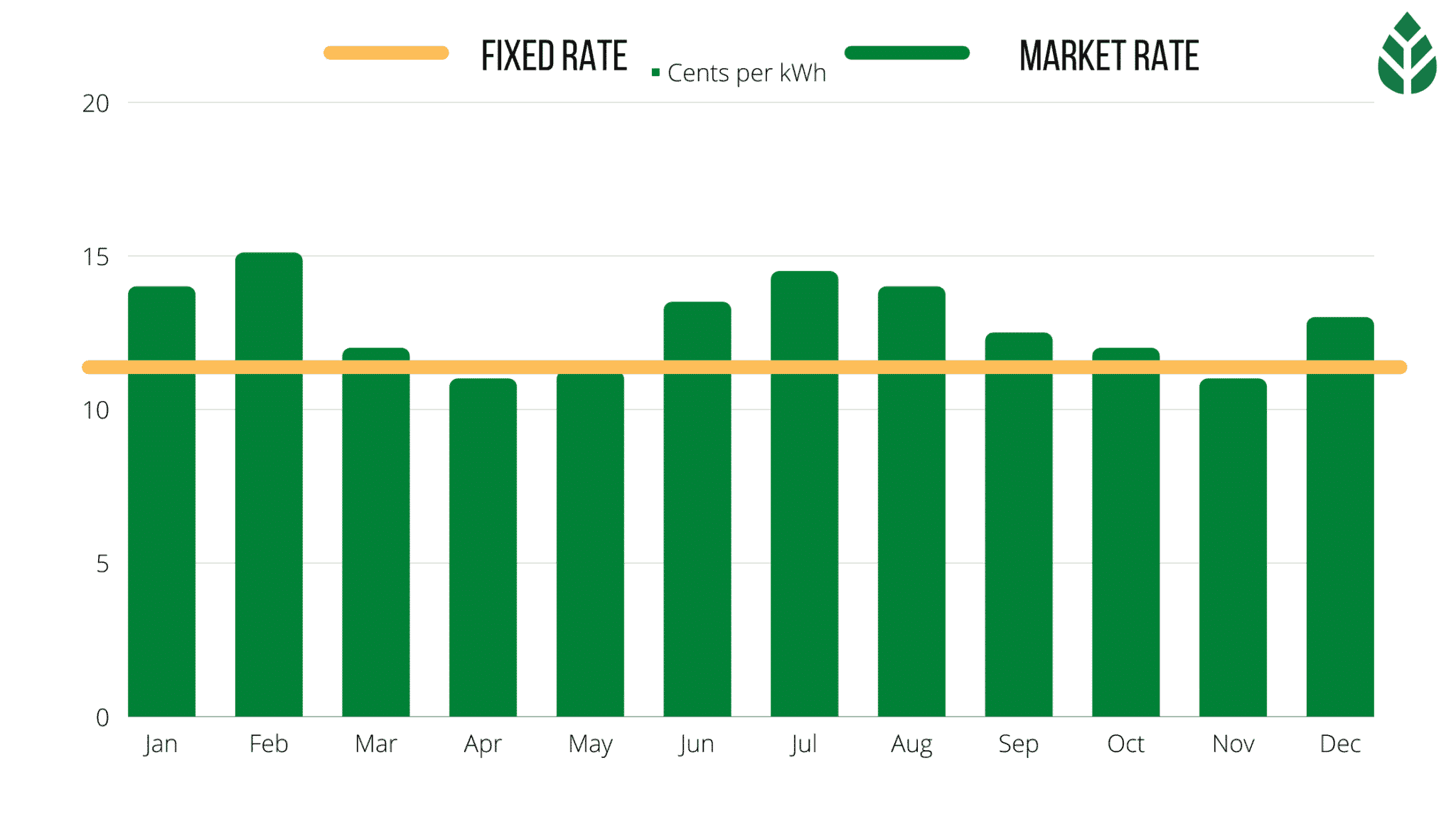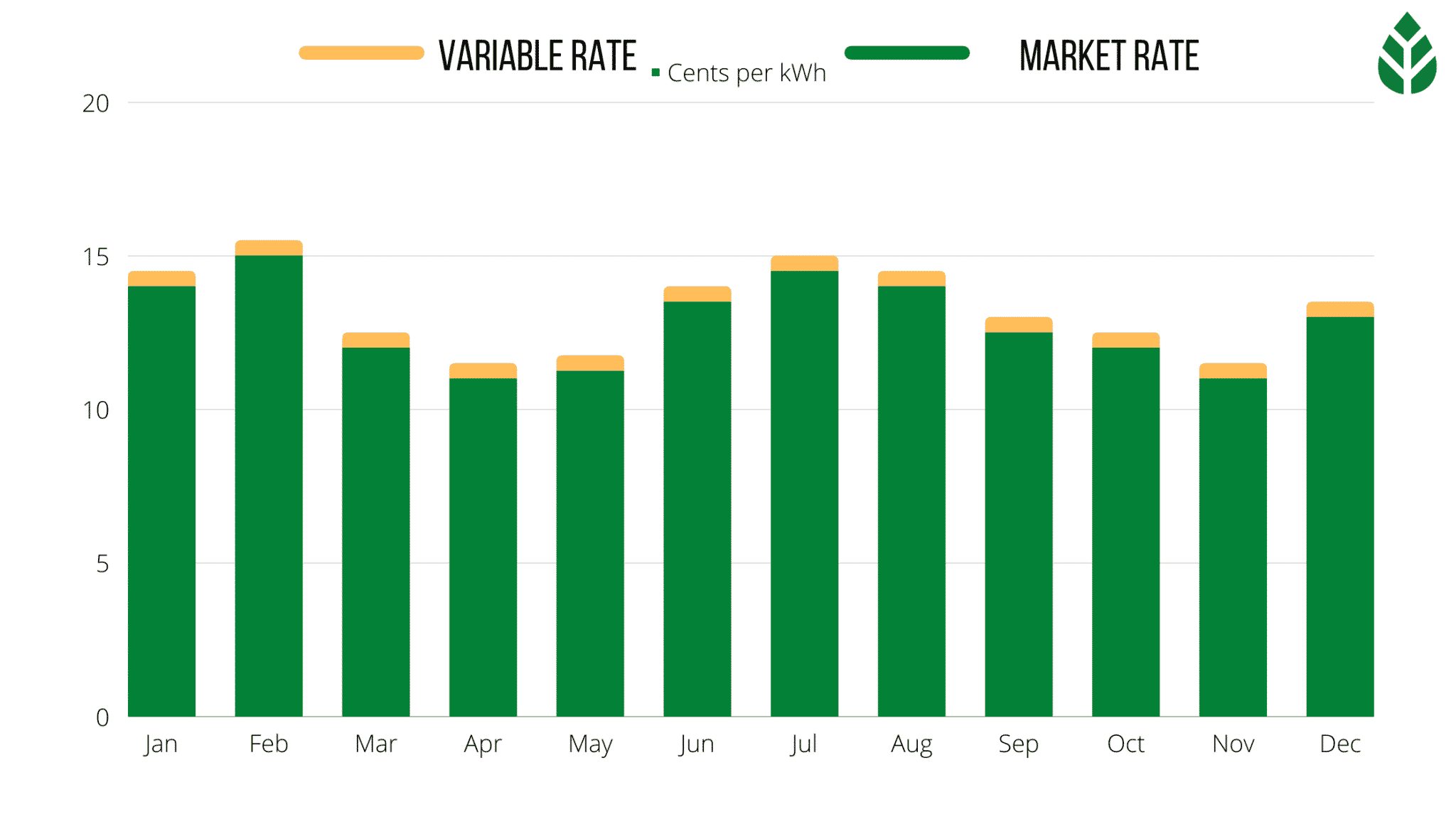
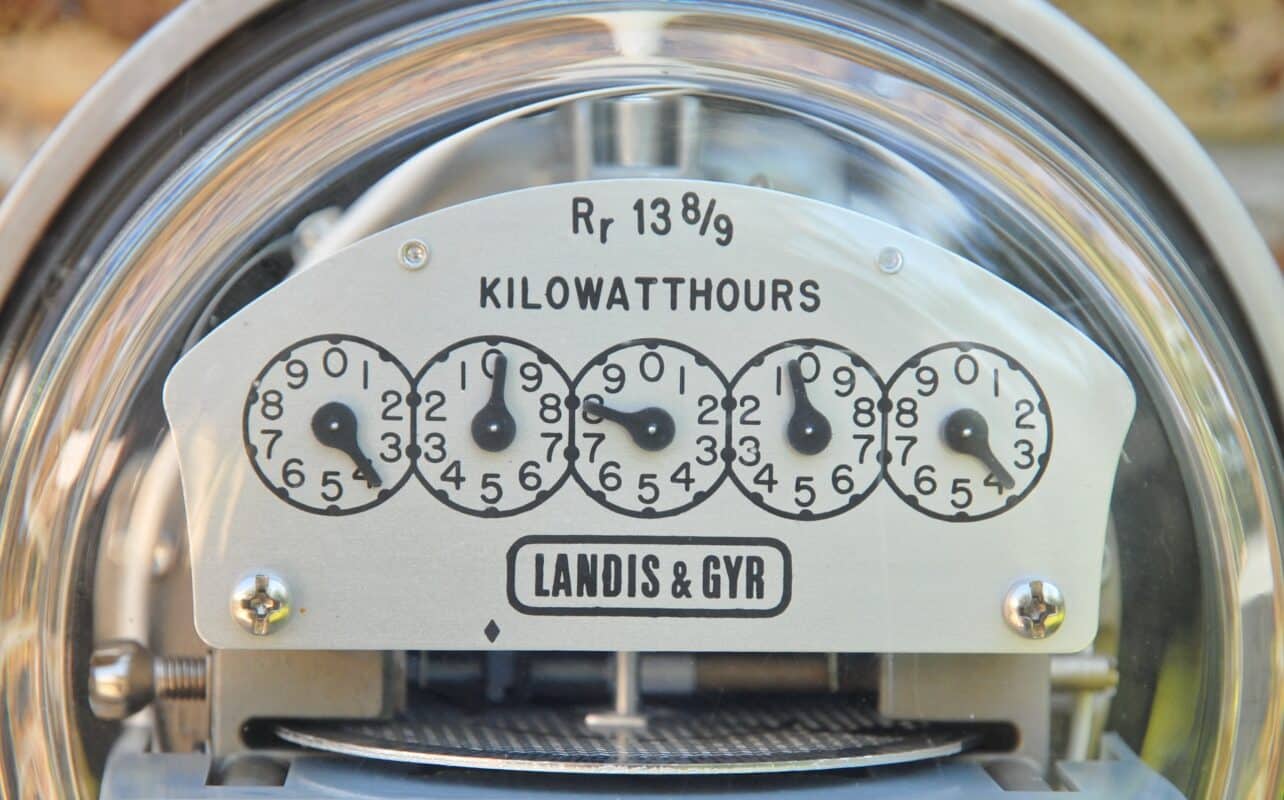
Compare Delaware Electricity Rates (2024 Best Prices)
Here’s a quick overview of Delaware electricity rates:
- Current average retail rate of electricity: 13.16 cents per kilowatt-hour (kWh)
- Current range of electricity prices in Delaware: 8.3 to 18.0 cents per kWh
- Average monthly electric bill: $114.08
- Average energy usage: 932 kWh
Figures accurate as of time of publication.
Each product and or company featured here has been independently selected by the writer. You can learn more about our review methodology here. If you make a purchase using the links included, we may earn commission.
Who Has the Best Energy Rates in Delaware?
If you’re simply shopping for the lowest possible electricity rates in Delaware, NRG is probably your best bet, as its renewable energy plan has a set rate of just 8.3 cents per kWh. Click below to compare energy rates from other top Delaware electric companies.
Delaware Energy Rates
Delaware deregulated its energy market in 1999. Since then, residents have had energy choice and can select service from any supplier available to them. Energy deregulation is typically seen as a positive thing, as it encourages competition among suppliers and ultimately lowers prices for consumers. The average per-kWh cost for energy in Delaware is around 13.16 cents per kWh, but you could pay anywhere from 8.3 cents to 20.77 cents per kWh depending on the supplier you choose.
In addition to the supplier, the electric utility that serves your area can have a slight effect on the price you pay for energy. Most Delaware residents are serviced by Delmarva Power & Light, but some residents will see varying energy costs if they’re serviced by NRG Energy, Delaware Municipal Electric Corporation, Chesapeake Utilities Corporation or the Delaware Electric Cooperative.
Comparison of Electricity Rates in Delaware
In the table below, we’ll compare the energy plans available to you in Delaware, including the contract term or length of the contract and the rate you can expect to pay per kWh. As a publication that focuses on environmental friendliness, we’re only including plans that use 100% renewable energy. You can learn more about these plans below, as well as their benefit to the environment.
| Plan Name | Term (Months) | Plan Rate (¢/kWh) |
| CleanChoice 100% Wind and Solar | 12 | 18 cents |
| Clearview Energy ClearGreenGuarantee6 | 6 | 15.79 cents |
| Clearview Energy ClearGreenGuarantee6 Plus | 6 | 14.89 cents |
| Clearview Energy ClearGreenGuarantee12 | 12 | 16.49 cents |
| Clearview Energy ClearGreenGuarantee12 Plus | 12 | 15.49 cents |
| Direct Energy Go Green Lights 24 | 24 | 15.29 cents |
| Just Energy Just Green Plan | 36 | 14.09 cents |
| NextEra Energy Eco Power 6 | 6 | 11.20 cents |
| NextEra Energy Eco Power 12 | 12 | 10.40 cents |
| NRG Renewable Energy Plan | 3 | 8.3 cents |
| Residents Energy 100% Green Energy Variable | 1 | 11.8 cents |
| Residents Energy 100% Green Energy Fixed | 6 | 17.99 cents |
| Residents Energy 100% Green Energy Fixed | 6 | 20.77 cents |
| Smart Energy 6 Month Fixed | 6 | 19.90 cents |
| Xoom Energy Simple Clean 12 | 12 | 12.59 cents |
*Rates will vary based on your public utility; you’ll see the rates above if your utility is Delmarva Power. Rates are subject to change.

Clearview Energy
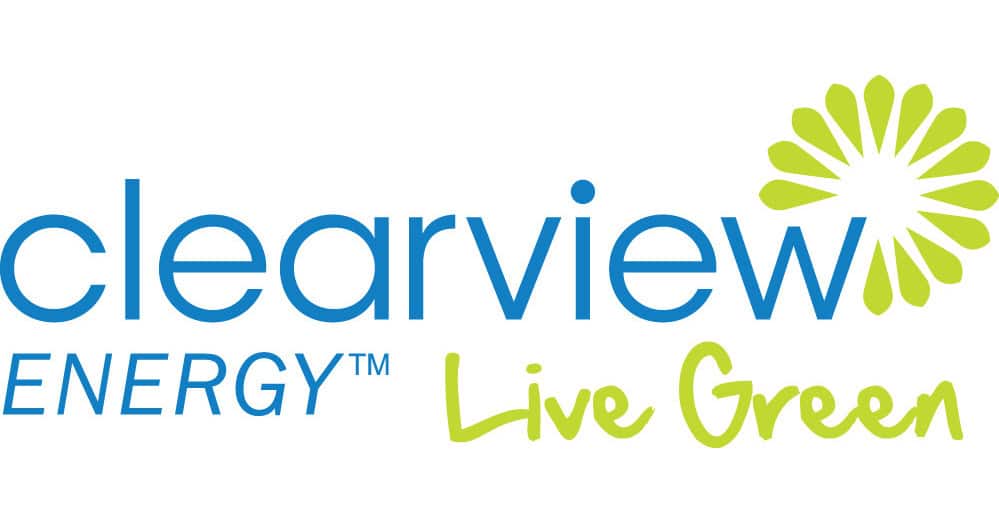
Nationwide Service
Average cost
Pros
- Many years of experience
- Makes charitable contributions
- Values transparency
- All plans use clean energy
- Low rates
Cons
- Charges contract cancellation fees
- Some reports of misleading door-to-door sales

CleanChoice Energy
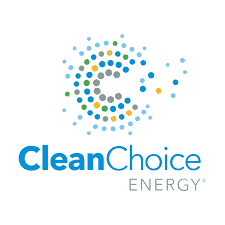
Regional Service
Average cost
Pros
- Low rates
- Low number of customer complaints
- Makes charitable contributions
- All plans use clean energy
- No early termination fees
Cons
- No prepaid or no-deposit plans
- No satisfaction guarantee
- Young company
- Low number of plans to choose from

Residents Energy

Regional Service
Average cost
Pros
- Low number of customer complaints
- No early termination fees
Cons
- Expensive
- Not as many renewable energy options as competitors
- Low number of plans to choose from

NextEra Energy

Regional Service
Average cost
Pros
- Many years of experience
- Makes charitable contributions
- Low rates
- Wide variety of plan options
Cons
- Charges contract cancellation fees
- No prepaid or no-deposit plans
- Not as many renewable energy options as competitors
How to Find the Best Electricity Rates in Delaware
Many Delawareans assume that the cheapest energy plan is the best one for their purposes, but there are other factors you should consider when deciding. We’ll explain why things like your energy usage and the term of the contract you’re considering can also play a role in which energy plan is right for you.
Your Energy Usage
Even if one plan looks like the cheapest by the rate, it might not be the most cost-effective for you specifically. Many electric suppliers in Delaware use tiered rates for electricity, which allow the price per kWh to vary depending on your energy consumption. In most cases, customers who use below the average or above the average will see higher rates with a tiered plan than those who use around the average of 932 kWh per month. If you fall well below or above the average, a tiered rate might not be best for you.
Another option that some electric companies offer is a time-of-use (TOU) structure, where all rates are the same across all users but vary depending on the time of day. A TOU rate plan might work for you if you find that most of your energy consumption is during off-peak hours. The Delaware Public Utilities Commission (PUC) does not set off-peak hours, so you’d have to check with your electricity provider for that information.
Contract Length
The length of your contract is another important consideration. Most fixed-rate energy plans have a contract term of a certain length, locking the fixed rate until the end of the contract. Some customers don’t like long contracts because electric rates might go down, and they’d still be locked into the higher rate. However, longer contracts typically come with lower rates overall because you’re guaranteeing the supplier your business.
Contracts can also contain stipulations that can change the rate you pay throughout the term, so it’s important to read the fine print. You should look out for introductory rates that increase partway through the term, sign-up fees, early-cancellation fees and other specifications that can affect what you pay for power and when you pay it. If you’re unsure which plan is right for you, you can use this tool or click below to help you decide on the best one.
Types of Electricity Plans in Delaware
There are different types of energy plans available in Delaware, and understanding the pros and cons of each can help you narrow down the plans you should choose between. We’ll discuss the different plan types below to give you an idea of which might work best for your purposes.
Fixed-Rate Plans
Fixed-rate plans usually involve a contract term that can range from a few months to several years. During the term, you’ll be locked into a single rate for electricity. While some customers don’t like long-term commitments, these plans do guarantee that your energy rates won’t increase, even in the case of high-demand, low-energy supply or times of crisis. For this reason, we generally recommend these plans.
In exchange for peace of mind, you can expect to have early-cancellation fees and static contracts, but you also get the ability to budget more accurately. It’s important to note, however, that fixed-rate plans can still leave you with different payment amounts each month. Only the per-kWh rate is fixed, so your usage will still impact your monthly utility bills.
| Pros of a Fixed-Rate Energy Plan | Cons of a Fixed-Rate Energy Plan |
| They make budgeting much simpler | They require a contract and could include early-termination fees |
| Your energy rates are guaranteed to stay the same, even if local rates rise | They could be more costly than variable-rate options if local rates drop |
Variable-Rate Plans
Rather than lock you into a contract with a fixed rate, variable-rate plans typically require no contract and, therefore, have no early-cancellation fees. You’re free to change plans or suppliers at any time.
The downside of variable-rate plans is that your rate fluctuates with local electricity prices, which means periods of high demand or times of crisis could cause your rate to skyrocket unexpectedly. Though there is less peace of mind with variable-rate plans, you do stand to enjoy greater energy savings if local rates drop or stay low.
| Pros of a Variable-Rate Energy Plan | Cons of a Variable-Rate Energy Plan |
| You stand to save money if local rates stay low | Electricity rates could spike unexpectedly during periods of high demand |
| No contracts are required, which means no early-termination fees | You could end up paying more than a fixed-rate plan if local prices stay high |
No-Deposit and Prepaid Energy Plans
Many electricity providers require deposits upon plan enrollment as a means of offsetting losses if customers don’t pay their bills. Some companies offer no-deposit plans for customers who can pass a credit check, as they are more likely to pay their bills. This can save you some money up front.
You can also sometimes choose a prepaid energy plan, which also helps you avoid sign-up fees. These plans require that you add money to an online account to pay for energy before you use it. Your account is then debited as you consume power, but you’ll never be charged more than you place in your account. Prepaid plans are helpful for lowering up-front costs and staying in complete control of your expenditure, but you could be subject to outages if you don’t remember to top up the account.
| Pros of a Prepaid Energy Plan | Cons of a Prepaid Energy Plan |
| Limited up-front expenditure | You could lose power if you fail to add sufficient funds to your account |
| You’re always in complete control of your spending | Many prepaid plans have slightly higher per-kWh prices |
| No contracts or early-cancellation fees |
Green Energy Plans
As the name implies, green energy plans guarantee that all of the power delivered to your home is produced via renewable energy sources. These plans can also have fixed or variable rates, and some can be prepaid as well. These plans let you support clean energy and are often just as affordable — if not more affordable — than plans from companies that use fossil fuels to produce electricity.
Delaware is making strides toward a smaller overall carbon footprint with its Renewable Portfolio Standard (RPS) goal of producing a minimum of 40% of its power via clean energy sources by 2035.1 It’s possible that, in line with this goal, the state will further incentivize green energy plans in the future. This could bring down prices and lead to more renewable energy plans being available.
| Pros of a Green Energy Plan | Cons of a Green Energy Plan |
| Lets you support renewable energy without a major up-front investment | Clean energy plans can be 1 to 2 cents higher per kWh than others, on average |
| Helps the environment and reduces your carbon footprint | Fewer plan options currently available |
Business Energy Plans
Finally, business energy plans are designed for commercial customers, as they base the rate and contract structure on the assumption that energy needs will be higher than those of residential customers. These plans aren’t as prevalent as residential energy plans, so you might have fewer options once you find power suppliers who offer business energy plans.
Electricity Companies and Providers in Delaware
Since 1999, when the energy market in Delaware was deregulated, homeowners have had electric choice and could pick whichever supplier suited them best. While this is generally great news, it also makes your decision harder by creating so many choices. Below are some of our top-rated electric suppliers in Delaware to help get you started. It should be noted that some popular companies like Constellation aren’t included because they lack renewable energy plan options.
Clearview Energy
- Outstanding customer reviews
- Multiple term options available
- 100% renewable plans offered
- Fixed-rate plans available
CleanChoice Energy
- Positive online reviews
- Renewable energy plans available
- Fixed-rate contracts offered
Residents Energy
- Multiple contract terms offered
- Green energy plans available
- Fixed-rate contracts provided
- Generally positive customer reviews
NextEra Energy
- Multiple contract terms provided
- Relatively affordable
- Renewable energy plans offered
- Fixed-rate contracts available
What to Look For When Choosing an Electricity Provider in Delaware
As we discussed briefly above, choosing an electricity provider in Delaware should entail more than looking for the supplier with the lowest per-kWh rates. While cheaper-seeming energy looks appealing, there are other factors that can make the plan less beneficial to you and could end up costing you more in the long run. We’ll discuss some additional factors you should consider below.
- Plan Options: First, you should decide which energy plan types seem suitable to you, and then you can filter the plans based on whether you want a fixed-rate, variable-rate, prepaid or another plan. You might be able to rule out a company altogether if it doesn’t have the option you think you want.
- Energy Source: Many electric companies in Delaware still use coal and natural gas to produce electricity. We strongly recommend choosing a renewable energy plan to reduce your carbon footprint and your contribution to pollution and global warming.
- Electricity Rates: The price of electricity will always matter, and cheaper options that suit you in other ways — like contract length and rate type — will usually be better.
- Contract Details: The term of the contract is an important thing to consider, as you’ll be locked into your rate for that amount of time, even if prices go up or down. You should also look at the fine print for things like introductory rates and what happens when your contract ends.
- Customer Reviews: It’s wise to look at customer reviews online before deciding on a company. Positive and negative reviews can give you an idea of what kind of experience you’re likely to have with a supplier.
- Company History: Companies that have been in the industry longer are more likely to have the resources to respond quickly to customer issues like billing questions.
FAQ: Delaware Electricity Plans
The EcoWatch team gets questions often from Delaware residents on how to choose the most beneficial electric plan. Below are some of the questions we see most often, along with our responses.
Out of all of the energy suppliers that provide renewable energy plans throughout Delaware, NRG Energy has the lowest rate. The average rate per kWh in the state is around 13.16 cents, but NRG’s Renewable Energy Plan delivers each kWh for just 8.3 cents.
There is no single energy provider that will be ideal for every Delaware homeowner. Rather than basing your choice on which is the best, it’s better to choose the one that suits you. With that being said, Clearview Energy ranks highest on our list of top energy providers in Delaware. This company has multiple green energy plans available, provides fixed rates, has multiple contract term options and maintains outstanding customer reviews online.
Since Delaware has a deregulated energy market, one of the easiest ways to reduce your electric bill is to switch energy providers. Some suppliers offer lower rates per kWh than others, so finding a new utility company that suits you and making the switch could instantly lower your bills. You can use this tool to find the best plan for you and to start saving money right away.
You can also lower your electric bill by using less energy. In most cases, homeowners accomplish this by upgrading insulation, windows and doors, installing a smart thermostat to regulate cooling and heating equipment more efficiently and upgrading to high-efficiency appliances and light bulbs. You can check out our guide to improving home energy efficiency for more tips.
There is no single energy plan that will appeal equally to all Delaware residents. For example, while some customers might prefer the stability of a fixed-rate plan, others might prefer the potential savings of a variable-rate plan. You can start your search for the right energy plan for you by looking at options from our top-rated suppliers, including Clearview Energy, CleanChoice Energy, Residents Energy and NextEra Energy.

 233k
233k  41k
41k  Subscribe
Subscribe 
